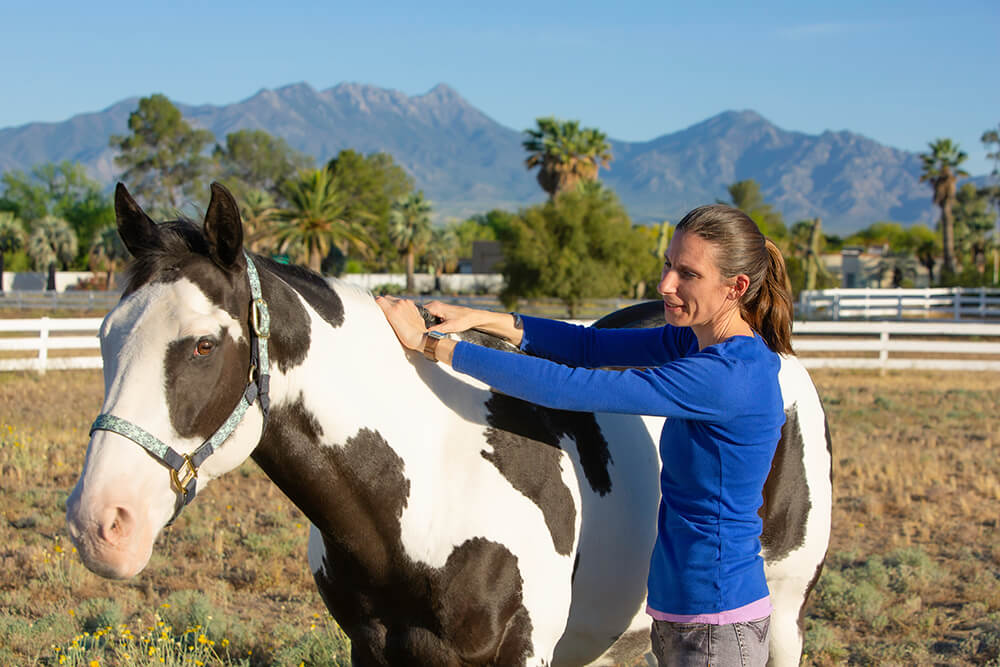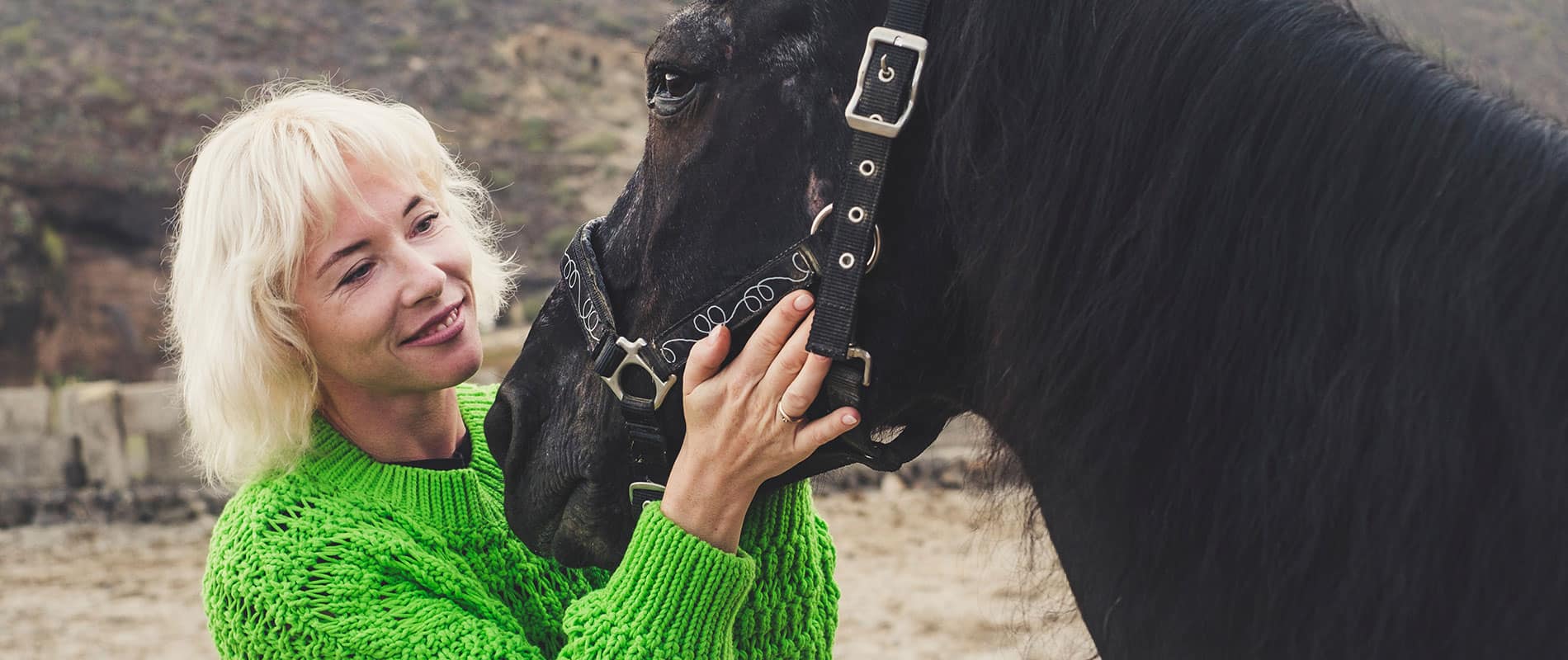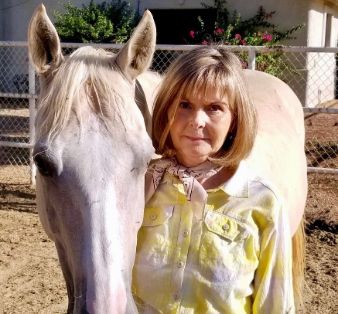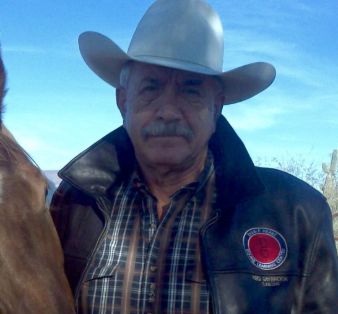Fountain Hills Recovery is a licensed and Joint Commission Accredited treatment center. We specialize in various disorders including substance abuse and mental health issues. With a limited staff-to-patient ratio, serene location and comprehensive programs, our company provides a tranquil and supportive environment for individuals on their journey to long-lasting recovery, guided by compassionate and experienced experts.
Equine-assisted therapy is a form of therapy that includes horses. Horses are often used in animal-assisted therapy, alongside other animals such as cats and dogs. Here at Fountain Hills Recovery, we create positive interactions between horses and people, which then helps our patients with overcoming serious life struggles.
Addiction & mental health disorders are challenging millions of good American families every year. It often flies under the radar until it starts taking its toll, and you are here because its emotionally draining. One thing everyone should remember is that it’s never too late to start fighting addiction.
If you or a loved on is looking for a luxury mental health & addiction treatment center in Arizona, we are here to help. Our luxury treatment centers and caring licensed staff are world-class.
Ready to get more information?
Call Us to Check Availability
(800) 715-2004
The gravity of your problem depends on when you decide to acknowledge your issue. In other words, it’s always better to start working on yourself sooner rather than later, but it’s also important to keep in mind that it’s never too late. You are stronger than you think.
*We do not offer Equine therapy services for the summer months of June, July, and August due to the extreme heat.

Get Help Today With Fountain Hills Recovery
Check Availability: 800-715-2004
Your information is always kept private.
"*" indicates required fields
Equine Therapy for Addiction Treatment Yields Incredible Results
While equine assisted therapy is somewhat new, it has shown incredible results throughout the years as a branch of Animal-Assisted Therapy — an approach in which a person interacts with animals rather than other people. The best thing about it is that it can sometimes yield better results than traditional talk-therapy.
This type of therapy may not be suitable for everyone, as personal preferences play a role. For example, some people simply aren’t keen on interacting with animals, which is nothing out of the ordinary but requires different actions.
We strive to help our patients rehabilitate from their addiction in a way that’s beneficial both for their health and mental stability. Equine therapy can address some aspects of addiction recovery that traditional therapy might not.
While not all people are perfectly viable candidates for this particular method, the vast majority are indeed eligible. If you’re not sure whether this is the right thing for you, take a moment and check out some of these benefits:
- Horses can significantly improve your trust-building skills
- Horses can sense one’s feelings and respond accordingly, thus offering immediate feedback
- Horses can help you improve both your social and cognitive skills
- Horses offer unconditional love and a non-judging relationship

Get Started at Fountain Hills Recovery
If you or your loved one is struggling against addiction and looking for an alternative solution, such as equine therapy, pick up your phone and give us a call! We will be more than happy to guide you through the process and follow your progress each step of the way. You are not alone in this fight.
Call Us to Check Availability (800) 715-2004
Meet Our Equine Therapy Team
Our equine therapists are both experienced with utilizing horses to help those struggling with addiction.

Sheryl W. Harrison, Ph.D.
Dr. Harrison is a licensed psychologist in private practice in Scottsdale AZ. She has been a faculty member in the Clinical Psychology doctoral program at the Arizona School of Professional Psychology for 16 years where she taught courses in a variety of therapy approaches including Animal Assisted Therapy. She has taught courses in Animal Assisted Therapy as an adjunct professor in other doctoral and Master’s programs as well.
She is certified as a mental health specialist in Equine Assisted Psychotherapy (EAP) by the Equine Assisted Growth and Leaning Association (EAGALA) and has passed the Equine Specialist in Mental Health and Learning workshop and Horsemanship Skills test of the Professional Association of Therapeutic Horsemanship Int’l. As part of her private practice she has offered equine assisted individual and group therapy along with her EAGALA certified Equine Specialist partner, Reg Saybrook, for the past nine years.
Dr. Harrison has a special interest in research involving EAP. To this end she has chaired seven dissertations that have investigated the effectiveness of EAP with a variety of patient populations including substance use disorders. AS a result of this interest, she served as the chair of the research committee of EAGALA for two years. A growing body of research has documented that EAP is effective in treating many disorders and populations. She has made presentations and offered workshops on EAP at state, regional, national and international conferences.

Reg A. Saybrook
Reg has been a horse trainer for over 50 years, beginning at age 12 when he trained the horses on his family’s cattle ranch in North Dakota as well as horses on neighboring ranches. For the past 35 years, he has been perfecting his own training technique which he calls the “Heart to Heart” approach, through his Double Heart Equine Learning Center. Much of his technique developed from his study of wild mustang herds which he began doing 35 years ago.
For the past 20 years, Reg has provided training clinics nationally and internationally, to other trainers and equestrians through his “Heart to Heart” clinics. He has provided workshops and clinics to instructors and volunteers at PATH Int’l and RDI (Riding for the Disabled International) therapeutic riding centers in the continental US, Hawaii, Canada, Bermuda and Australia. He has presented workshops on Equine Assisted Psychotherapy at local, state, regional and national conferences.
Reg is certified by the Equine Assisted Growth and Learning Association as an Equine Assisted Psychotherapy Equine Specialist and has served as the equine specialist with a number of mental health professionals. He has also completed the Professional Association of Therapeutic Horsemanship Int’l Equine Specialist in Mental Health and Learning certification workshop and Horsemanship Skills Test in 2012.
Frequently Asked Questions
Our horse therapy services help break down the barriers to effective communication and healing often seen with those suffering in silence. As the focus shifts to attending to the needs of the animal, it helps people adjust their perceptions and feel more connected while also building confidence through a bond of trust and support.
Therapeutic horse riding has been around for thousands of years but became officially recognized in the 1960s. Since the 1990s, more and more mental health and wellness facilities have used Equine-Assisted Therapy (EAP) to promote psychological well-being all across the world.
Participants in horse therapy in Arizona should dress comfortably and according to the Maricopa County weather. We recommend breathable, lightweight fabrics. Clothing should also be appropriate for working closely with barn animals, such as close-toed shoes and durable denim you won’t mind getting dirty.
Equine therapy for mental health offers many benefits. By working with horses and mental health professionals, our solutions give participants the support needed to address a range of issues. Whether someone is searching for equine therapy for anxiety, equine therapy for depression, or equine therapy for PTSD, the goal is the same: to help improve self-esteem, confidence, empathy and other important matters of the mind.
In addition to our horse therapy for anxiety and other mental health conditions, we offer treatment for those recovering from an alcohol or drug addiction. By learning how to care for and communicate with horses, individuals can practice patience and impulse control while also improving their social and problem-solving skills. All this comes together to help them get back on track to a life worth living.

